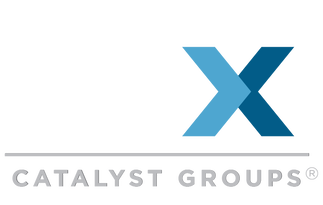Corporate Engagement: A Virtuous Cycle
As seen in Cascade Business News - 09/20/2023
One notable characteristic of Central Oregon is the generosity of its corporate citizens. Nearly everywhere you look, you see companies stepping up to support worthy community causes: nonprofit services, music, the arts, education, sports, political causes, social causes, faith-based initiatives, and secular humanitarian efforts. Corporate support comes not just in the form of financial contributions, but also in the form of countless volunteer hours willingly given in service to others. The examples are endless. A list of Central Oregon companies deeply involved in our regional affairs would completely fill the space of this article – and more.
As seen in Cascade Business News - 09/20/2023
One notable characteristic of Central Oregon is the generosity of its corporate citizens. Nearly everywhere you look, you see companies stepping up to support worthy community causes: nonprofit services, music, the arts, education, sports, political causes, social causes, faith-based initiatives, and secular humanitarian efforts. Corporate support comes not just in the form of financial contributions, but also in the form of countless volunteer hours willingly given in service to others. The examples are endless. A list of Central Oregon companies deeply involved in our regional affairs would completely fill the space of this article – and more.
|
Corporate engagement at its finest flows out of a sincere desire to serve the community. When you think about it, what we call “business” is simply an organized way to offer and provide help to others…at a profit (which makes the process sustainable). At its essence, then, a business is just a vehicle to provide help and serve others. Profit is a legitimate result of doing that well. It’s the outcome of providing value.
|
Corporate engagement at its finest flows out of a sincere desire to serve the community. |
But chasing profit purely for its own sake…grasping to amass more cash…ultimately rings hollow. Therefore, it just makes sense that an organization that exists to provide help to customers in one domain is ideally positioned and resourced to provide help to people in other domains. The “profit” or the return on an investment in serving our community shows up differently than just dollars on the corporate bottom line, but it’s very real. Just ask any of the countless companies that invest in the community with a holistic view of business as platform for service, and that pursue a multi-faceted “bottom line.”
Engaging with the community is not something that is just nice to do. When a company invests in its local community, it strengthens the very market it serves. Although there may not be a direct link from community investment to corporate bottom line, the logical connection is clear to all good corporate citizens. Investment always precedes return. However, community engagement is a long game of continual participation, contribution and value creation. It’s not a one-shot payoff.
Investing in the community makes it better for all who live here. As overall quality of life rises, all citizens benefit, including the employees and their families employed by the business. The best corporate engagement is simply a part of ongoing corporate culture, and the business prospers (in the largest sense of the word) accordingly.
Community involvement is also one of the best forms of market research, as a business connects directly with its various stakeholders. By taking an active role in the community, a business develops an understanding of its target market while creating meaningful relationships with customers and strategic partners. It also builds trust by demonstrating that the company cares not just about monetary profit, but also about the wise use and reinvestment of its money and resources.
Engaging with the community is not something that is just nice to do. When a company invests in its local community, it strengthens the very market it serves. Although there may not be a direct link from community investment to corporate bottom line, the logical connection is clear to all good corporate citizens. Investment always precedes return. However, community engagement is a long game of continual participation, contribution and value creation. It’s not a one-shot payoff.
Investing in the community makes it better for all who live here. As overall quality of life rises, all citizens benefit, including the employees and their families employed by the business. The best corporate engagement is simply a part of ongoing corporate culture, and the business prospers (in the largest sense of the word) accordingly.
Community involvement is also one of the best forms of market research, as a business connects directly with its various stakeholders. By taking an active role in the community, a business develops an understanding of its target market while creating meaningful relationships with customers and strategic partners. It also builds trust by demonstrating that the company cares not just about monetary profit, but also about the wise use and reinvestment of its money and resources.
Community involvement is also good for recruiting, inspiring and retaining high quality employees. The best employees are those who don’t just want to grind out a job and go home, but who want to be part of a team that exists for a purpose that goes beyond just cranking out widgets. The best people want to make a difference in the world. They thrive in an environment where that’s clearly a priority. This sense of purpose can lead to increased job satisfaction, improved retention rates, and heightened productivity.
When a business engages with the community as a part of its core culture, it launches a virtuous cycle that tends to feed itself. As employees become more motivated and productive, businesses see an increase in profits. Some of these additional profits can then be reinvested back into the quality of the work environment and some can be invested back into the community. The cycle continues as this further investment in the community enhances the company's reputation and trust, drawing in more customers and motivating employees even further. In this way, corporate community engagement creates a positive cycle of profit, employee motivation, and community impact. It’s the perfect example of a company that is doing well…and doing good.
When a business engages with the community as a part of its core culture, it launches a virtuous cycle that tends to feed itself. As employees become more motivated and productive, businesses see an increase in profits. Some of these additional profits can then be reinvested back into the quality of the work environment and some can be invested back into the community. The cycle continues as this further investment in the community enhances the company's reputation and trust, drawing in more customers and motivating employees even further. In this way, corporate community engagement creates a positive cycle of profit, employee motivation, and community impact. It’s the perfect example of a company that is doing well…and doing good.
Although there are many examples of great corporate citizens in Central Oregon, one of the most well-recognized is MidOregon Credit Union, recently voted Best of Bend. The opening presentation at the upcoming Central Oregon Business Forum on September 27 at the Riverhouse, is by MidOregon CEO Kevin Cole, who will share his perspectives on corporate engagement and the MidOregon culture. This is a presentation you don’t want to miss. For more information and to register, visit: https://BusinessForum23.Eventbrite.com.
Michael Sipe is a local business coach and mergers and acquisitions advisor. 10xGroups.com and CrossPointeCapital.com
Michael Sipe is a local business coach and mergers and acquisitions advisor. 10xGroups.com and CrossPointeCapital.com


